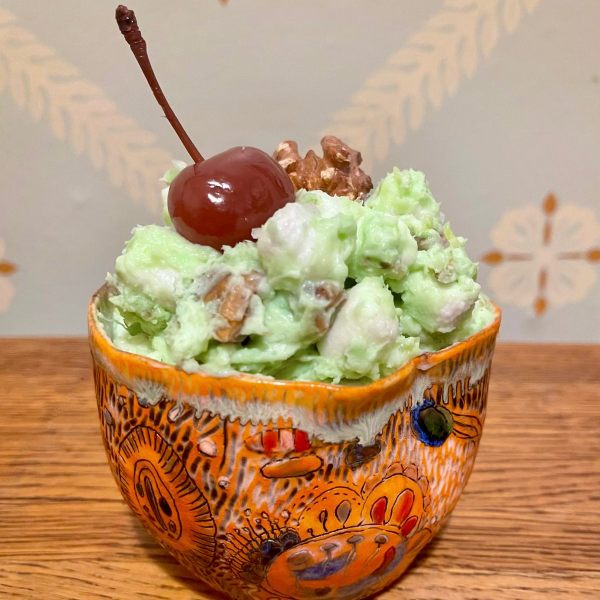All food is political–but some foods are more political than others. Not only can a dish serve as a symbol of identity or status, it can be tied to politics in a more literal sense. Some foods serve as a uniting factor by helping to raise money for a cause. Others establish a time-honored tradition within the political system. Still others cheekily reference the news of the day.
The foods and drinks on this list are all linked to political events or inspired by politicians. As the U.S. presidential election draws near, here are some dishes that will make you reflect on the connections between politics and what we eat (or simply give you inspiration for what to serve at your election party or Founding Fathers–inspired drinking binge).

People in Colonial New England viewed an election as cause for celebration. And celebration meant an excuse to serve cake. “Election cake” was more like a sweet bread than a modern batter-based cake, made with a yeasted dough enriched with egg yolks, sugar, rum, and spices. As other baked goods became more popular in the decades after the American Revolution, election cake fell out of fashion, but in recent election years, there have been attempts to revive the tradition.
U.S. politicians have long engaged in “hot dog diplomacy” by serving the iconically American food to visiting dignitaries. But in Australia, a grilled sausage, or “snag,” on a bun carries a whole different political significance. Sausages are commonly grilled at Australian polling stations and community events, where they’re sold to raise money for local causes. Since voting is mandatory in Australia, this can result in sausages bringing in impressive amounts of funding.

Theodore “Teddy” Roosevelt initially endorsed William Howard Taft’s presidency after his own term ended, but later grew dissatisfied with his chosen successor and decided to try and take the party nomination from him in 1912. “My hat is in the ring,” Roosevelt announced, which led to the development of a signature cocktail for his campaign, dubbed the “Teddy Hat” for its garnish: a piece of lemon peel cut to resemble Roosevelt’s signature Rough Rider hat. You could leave it in if you were voting Roosevelt, or take it out if Taft was your man.
In Kyiv, Ukraine, some local pastry chefs have come up with a creative way to support the war effort during Russia’s ongoing invasion. Customers can purchase chocolates and pastries in military-themed shapes like fighter jets, bomb-sniffing dogs, or defensive obstacles called “hedgehogs,” with proceeds going to the Ukrainian military. The war pastries have an additional layer of meaning because they represent pride in Ukraine’s national cuisine and identity.

The “soup of the day” in the United States Senate dining room, made from pork, beans, onion, butter, and sometimes potato, hasn’t changed for more than a century, except for one day in 1943, when it could not be served due to wartime rationing. No one knows who made “Senate soup” a permanent menu fixture, but it’s become an established tradition and is now served to the public at some other Washington, D.C., establishments.
When this sweet dessert “salad” debuted in 1975, it might have been a then-topical news reference: The name was a play on an earlier “Golden Gate salad” and the Watergate scandal, which led to the resignation of U.S. President Richard Nixon in 1974. Concocted from pineapple, walnuts, marshmallows, and pistachio pudding, the recipe involved “covering up” the nuts with other ingredients. The dish remains regionally popular in the United States, as does its cousin, Watergate cake.

Legend holds that one of Brazil’s most popular desserts was originally invented to raise funds for a 1946 presidential campaign. These truffle-like balls of cocoa powder and condensed milk were dubbed brigadeiros after Eduardo Gomes, a candidate and Air Force brigadier, and sold at his rallies during the first national election in which all Brazilian women could vote.
Gastro Obscura covers the world’s most wondrous food and drink.
Sign up for our regular newsletter.

